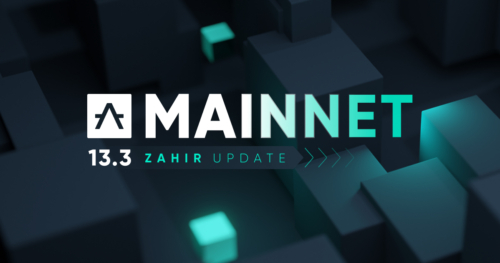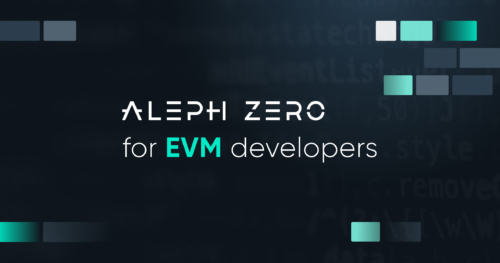The Future of Privacy: An Introduction to Privacy Preserving Blockchains
Aug 28, 2023

Almost two decades into Web2, privacy continues to be one of the hot topics in our digital lives. That’s because in order to solve this problem, there are fundamental parts of how the internet works that have to be redesigned. They have to be built so that they’re “privacy-preserving” from the ground up.
This is the future of privacy. A new technology stack where privacy is the default, not an add-on.
In this post, we will look at how this may come about thanks to new technologies in Web3 such as privacy preserving blockchains. These technologies are redefining the Internet, and by way of doing that, they are also redefining privacy.
What Are Privacy Preserving Blockchains?
Privacy-preserving blockchains are a subset of blockchain technology that focuses on enhancing the confidentiality and anonymity of participants’ data and transactions. At the same time, they still maintain the core principles of transparency and immutability associated with traditional blockchains.
These privacy features are particularly important because most blockchains, just like the original Bitcoin and Ethereum, are inherently transparent. All transaction details on these networks are visible to anyone and the only thing that stands for user privacy is the pseudonymous nature of public addresses. But it’s not enough.
Shapes and Sizes
Privacy preserving blockchains come in all shapes and sizes. Mainly, they vary by the techniques and cryptographic tools they employ to address privacy concerns.
Let’s look at some common approaches:
ZK Proofs
Zero-knowledge proofs allow one party (the prover) to prove to another party (the verifier) that a statement is true without revealing any other information. ZK proofs can be used to demonstrate the validity of a transaction without revealing the transaction details or the parties involved.
Private Transactions
Private transactions use cryptographic techniques to obscure the transaction amounts while still ensuring that the total inputs and outputs balance. This prevents observers from determining the exact amounts being transacted.
Ring Signatures
Ring signatures enable a user to sign a transaction on behalf of a group (or ring) of users without revealing which specific user actually performed the signing. This adds a layer of ambiguity to the transaction sender’s identity.
Homomorphic Encryption
Homomorphic encryption allows computations to be performed on encrypted data without the need to decrypt it first. This can be applied to blockchain transactions to enable validation and processing without exposing the underlying data.
State Channels and Sidechains
These are mechanisms that allow users to conduct transactions off the main blockchain, reducing the visibility of those transactions on the main chain. This can enhance privacy by keeping certain activities private among participants.
Private Smart Contracts
Privacy preserving blockchains can also incorporate smart contracts that operate on private or encrypted data, allowing for more complex interactions while maintaining data confidentiality.
Decentralized Identity (DID)
DID systems enable users to control and manage their own digital identities, allowing them to share only necessary information while keeping the rest of their identity private.
The Need for Privacy Preserving Blockchains
Overall, privacy-preserving blockchains strike a balance between the transparency and security benefits of blockchain technology and the need to protect sensitive data and maintain user privacy. By addressing these concerns, they broaden the potential applications of blockchain technology and contribute to its continued growth and relevance.
Privacy-preserving blockchains are valuable for various use cases, including financial transactions, supply chain management, and healthcare records. They enable participants to interact with each other while safeguarding sensitive information.
Some examples of what this might look like include:
Evolving Business Models
Privacy preserving blockchains could lead to new business models and services based on privacy-enhanced data analytics, where companies can analyze aggregated data without accessing individual-level details. It also helps businesses share valuable information to the industry without revealing sensitive information or losing any competitive advantages.
Secure Supply Chain Management
Industries like logistics and supply chain management can benefit from privacy preserving blockchains. Companies can track and verify goods along the supply chain while keeping sensitive business data confidential. This helps them maintain a record of provenance and other important data points that strengthen the chain as a whole.
Voluntary Disclosures of Sensitive Information
Privacy preserving blockchains offer improved data protection for personal information such as healthcare records. Individuals and organizations can transact and share data without exposing unnecessary details to the public thanks to the use of zk proofs. This can be done through the use of view keys that grant view-only access to other parties at the discretion of the information holder.
Necessary Compromises
However, it’s important to note that achieving strong privacy often involves trade-offs with scalability, as the complex cryptographic operations required for privacy can impact the speed and efficiency of the blockchain network.
This is a problem that the Aleph Zero blockchain solves by offering privacy preserving features based on zk proofs without sacrificing on scalability. Its AlephBFT consensus protocol is a combination of Proof-of-Stake with other technologies like Directed Acyclic Graphs (DAG) that maintain near instant transaction finality and low fees.
Stay tuned for more information on how privacy preserving blockchains use zk proofs to offer these features. Join the Aleph Zero community for updates on the latest developments on Web3 privacy.

